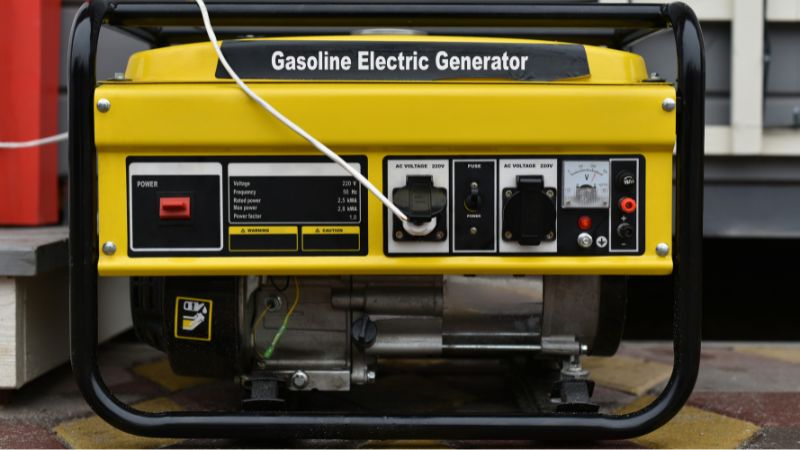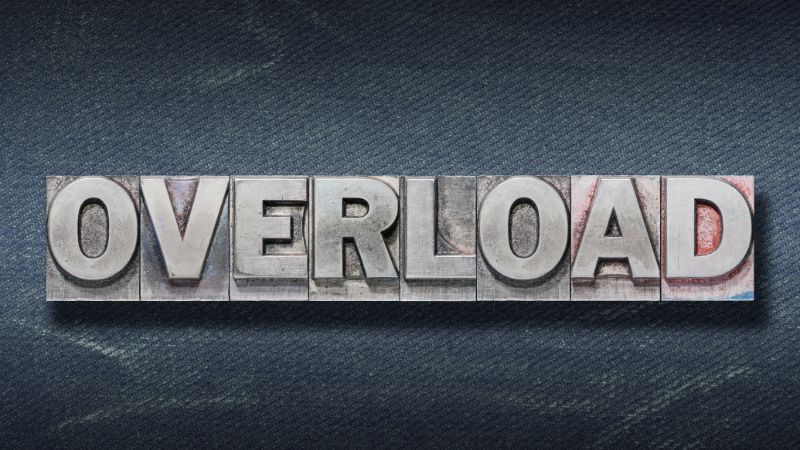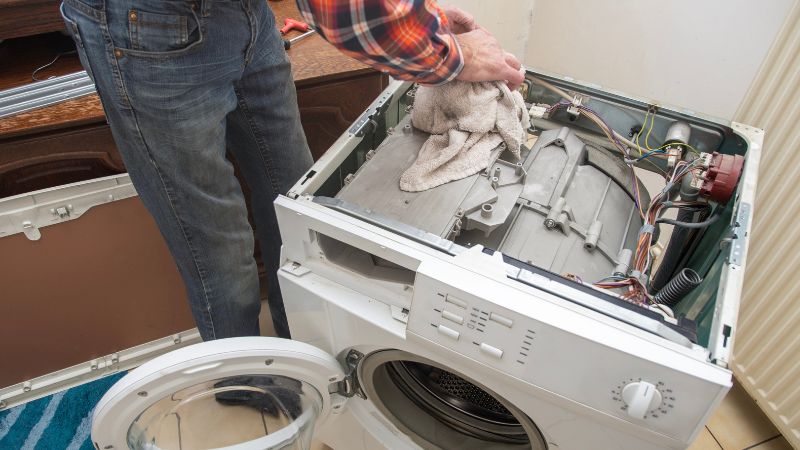
Generators play a vital role in providing reliable backup power during outages, running tools at a construction site, or supporting your home during natural disasters. But, using a generator beyond its capacity can lead to serious issues that may compromise both its functionality and your safety.
In order to maintain the longevity of your generator, it’s crucial to understand the signs of an overloaded generator, the potential consequences, and how to prevent this situation. In this text, we’ll explore these aspects to help you use the generator safely and effectively.
Signs of Generator Overload

When operating a generator, it’s essential to know the signs that indicate you may be pushing your unit beyond its limits. Here are some main symptoms:
1. Frequent Circuit Breaker Trips
If your generator’s circuit breaker keeps tripping, it’s a clear signal that your load exceeds its capacity. This safety feature is designed to avoid overheating and potential damage, so don’t ignore it.
2. Dimming or Flickering Lights
When you notice the lights in your home flickering or dimming while the generator is running, it’s often due to an overload. This fluctuation in power can disrupt appliances and cause motors to wear out faster.
3. Overheating
Touching the generator casing can be a good way to measure its temperature. If it feels excessively hot to the touch, it might be overloaded. Also, the generator should not emit burning smells or unusual noises such as whining or grinding.
4. Reduced Performance
An overloaded generator may struggle to keep up with the demands. If you notice that it fails to power certain appliances or shuts down unexpectedly, you’re likely pushing it too hard.
5. Inability to Start
Trying to start a generator that’s overloaded can lead to complications, such as a stalled engine. This may also indicate that the unit is unable to handle the accumulated power demand.
Consequences of Overloading
Overloading your generator can lead to various adverse outcomes, some of which can be quite severe:
1. Generator Damage
Exceeding the rated load can cause significant wear and tear on components such as the engine, alternator, and circuits. This damage may lead to costly repairs or even a total replacement.
2. Appliance Damage
Connecting devices that require more power than the generator can supply may damage those appliances. Motors in appliances, such as refrigerators or air conditioners, may burn out or fail due to insufficient power.

3. Safety Hazards
The risk of overheating increases when a generator is overloaded, which can lead to electrical fires. Also, carbon monoxide production rises, especially if exhaust systems are obstructed.
4. Increased Fuel Consumption
An overloaded generator works much harder than necessary, increasing its fuel consumption. This not only raises operating costs but also leads to more frequent refueling, which can be a hassle during power outages or emergencies.
5. Shortened Lifespan
All the stresses on the generator caused by overloading can drastically reduce its service life. Any mechanical equipment operating beyond its design limits will inevitably fail sooner or later.
What to Do If Your Generator is Overloaded
If you suspect your generator is overloaded, here’s how to address the issue:
1. Disconnect Devices
Start by unplugging non-essential appliances immediately. This action can help relieve the load on the generator, allowing it to regain stability.
2. Check the Load
Use a watt meter to measure the total load you’re placing on the generator. Double-check this against its rated capacity to ensure you stay within safe limits.
3. Let It Cool Down
Give the generator some time to cool down if it was running hot. Overheating can lead to further complications if left untreated.
4. Consult the Manual
Look at your generator’s user manual for guidance on how to operate it safely and efficiently. This document can provide insights into its specifications and recommended practices.
5. Consider Professional Help
If you continue experiencing overload issues, or if the generator has sustained damage, seek professional help. An expert can diagnose any underlying problems and propose solutions.
How to Prevent Overloading Your Generator
To ensure your generator operates efficiently, follow these preventive measures:
1. Know Your Generator’s Capacity
Familiarize yourself with your generator’s maximum wattage output, both starting and running. Understanding these figures will help you choose the devices and appliances you can run simultaneously.
2. Use a Load Calculator
Before plugging in appliances, use a load calculator to determine the total wattage demand. This calculation can avoid exceeding the generator’s capacity and help maintain safe operations.
3. Prioritize Essential Appliances
In emergency situations, focus on powering essential appliances. Make a priority list so you can easily identify what to connect first without exceeding overall capacity.
4. Maintain Your Generator
Regular maintenance, such as oil changes, filter replacements, and fuel system checks, keeps your generator in optimal working condition.
5. Install Load Management Devices
Consider investing in load management devices or automatic transfer switches that can help balance and distribute the electrical load effectively, minimizing the risk of overloading.
Frequently Asked Questions
What happens if you overload a generator?
Overloading a generator can cause significant damage to its components, lead to appliance failures, and increase safety risks such as electrical fires and carbon monoxide production.
What are the signs of an overloaded generator?
Signs include frequent circuit breaker trips, flickering or dimming lights, generator overheating, reduced performance, and the inability to start efficiently.
How can I prevent my generator from overloading?
Prevent overloads by knowing your generator’s capacity, using a load calculator, prioritizing essential appliances, and maintaining the generator regularly.
Is it safe to run multiple appliances on a generator?
You can run multiple appliances as long as their total wattage does not exceed your generator’s rated capacity. Always check using a load calculator first.
What should I do if my generator starts overheating?
If your generator overheats, immediately unplug non-essential appliances, let it cool down, and consult your user manual. If issues persist, seek professional help.
Wrapping Up
Ultimately, your generator’s longevity and safety depend on respecting its limits. Overloading leads to costly damage and serious hazards, but it is entirely preventable. By understanding the warning signs, calculating your loads, and prioritizing essential appliances, you ensure your generator remains a reliable safeguard.
